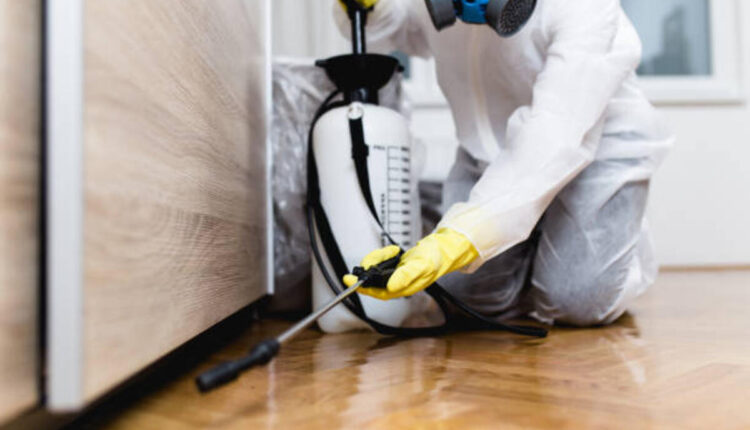Pest problems can be a nuisance, disrupting the tranquillity of your home and posing potential health risks. Integrated Pest Management (IPM) offers a comprehensive and sustainable solution to tackle these issues effectively. By combining various strategies, IPM holistically addresses home pest control, minimizing reliance on harmful chemicals while promoting long-term vermin management. With its emphasis on prevention, monitoring, and diverse regulation tactics, IPM provides homeowners with the tools and knowledge needed to safeguard their homes against these invasive species while maintaining environmental integrity.
Understanding Integrated Pest Management
IPM is a systematic approach that considers the biology and behavior of these invasive species, along with environmental factors, to devise effective control measures. Contrary to conventional vermin management approaches that heavily depend on pesticides, IPM prioritizes prevention, monitoring, and control using a variety of methods.
Prevention: The First Line of Defense
Preventing vermin infestations is critical to effective vermin management. This involves identifying and eliminating factors that attract invasive species to your home. Simple measures like keeping food stored in airtight containers, sealing cracks and crevices, and maintaining cleanliness can notably reduce the likelihood of vermin problems.
Monitoring: Identifying Invasive Species Threats
Consistent monitoring plays a vital role in detecting vermin activity at its onset. This involves conducting visual inspections, setting traps, and utilizing monitoring devices. Homeowners can promptly intervene before infestations worsen by identifying areas of heightened invasive species activity and tracking population trends.
Cultural Controls: Altering the Environment
Cultural management entails altering the surroundings to create a less favorable habitat for these species. This may include landscaping practices, such as removing debris and reducing moisture around the home’s perimeter. Additionally, selecting pest-resistant plant varieties can help deter pests from invading your garden or landscape.
Biological Controls: Harnessing Natural Predators
Biological controls leverage the natural enemies of these invasive species to keep their populations in check. This may involve introducing predatory insects, nematodes, or microbial agents that target specific pests while minimizing harm to beneficial organisms and the environment.
Chemical Controls: Selective and Minimal Use
While chemical regulations are sometimes necessary, they should be used judiciously and as a last resort in IPM. When selecting pesticides, preference should be given to low-toxicity options that target specific invasive species while minimizing harm to non-target organisms. Adhering to safety precautions and employing proper application techniques are crucial to guarantee the effective and responsible use of chemicals.
Advantages of Integrated Pest Management
One of the primary advantages of IPM is its focus on long-term prevention and sustainability. By tackling the root causes of vermin infestations and employing various methods, IPM decreases dependence on chemical pesticides and lessens environmental repercussions. Moreover, they promote biodiversity and ecosystem resilience by preserving natural predators and minimizing disruption to the environment.
Implementing Integrated Pest Management at Home
Implementing IPM at home begins with education and awareness. By familiarising yourself with the principles of IPM and understanding the habits and vulnerabilities of common invasive species, you can proactively prevent infestations and respond effectively when vermin problems arise. Regular maintenance of your home and garden, coupled with vigilant monitoring, will help keep invasive species at bay without compromising environmental integrity.
Utilizing Professional Services
Engaging the skills of professional services represents a strategic choice that can notably bolster your IPM endeavors. These services offer a comprehensive assessment of your property, identifying existing vermin issues and potential risk factors to tailor treatment plans accordingly. With trained technicians at the helm, you benefit from their expertise and experience in accurately identifying invasive species, understanding their behavior, and selecting the most effective regulation tactics. Moreover, professional services prioritize safety and effectiveness, utilizing proven treatment methods that minimize risks to both human health and the environment.
IPM offers a holistic, sustainable approach to home pest control, emphasizing prevention, monitoring, and diverse regulation tactics. Homeowners can manage nuisances effectively by combining cultural, biological, mechanical, and chemical controls while minimizing environmental impact. Professional services support IPM with expertise, assessment, and ongoing monitoring for best results.
Read also: bGet Your Dream Kitchen and Bath with a the Expertise of a Handyman in Georgia

